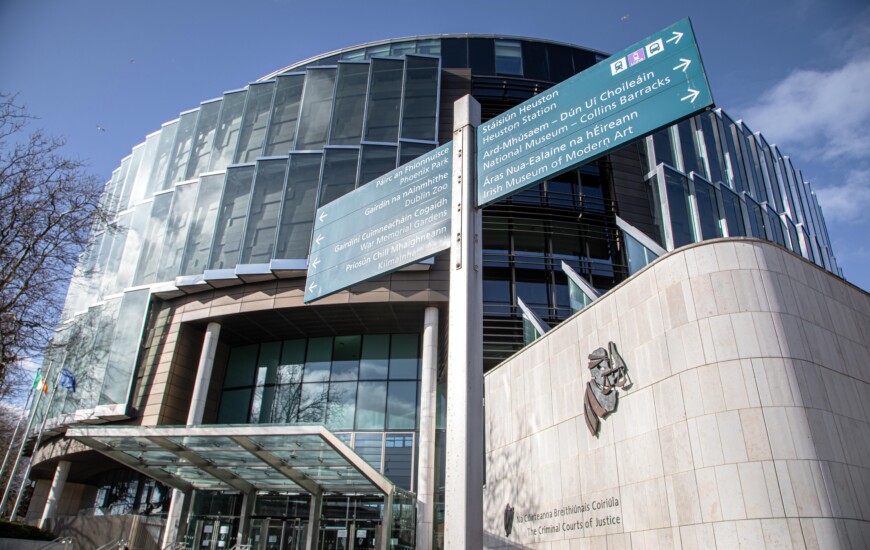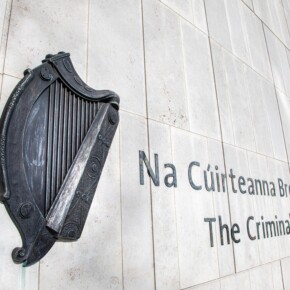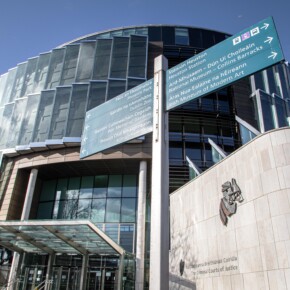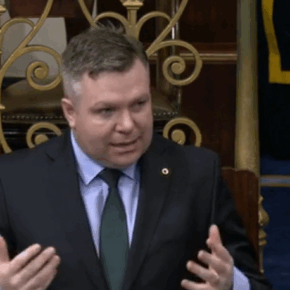Suspended sentence for teenager who sexually assualted vulnerable teenage girl
Dublin People 19 Jun 2024
This article contains references to sexual assault. Reader discretion is advised.
By Eimear Dodd
A teenage boy who sexually assaulted a vulnerable teenage girl has been warned by a judge that he must follow all the conditions imposed as part of a fully suspended prison sentence.
The now 18-year-old boy pleaded guilty to sexual assault on June 19, 2021 at a location in the north-east of the country.
The boy was 15 at the time, while the victim was then 16-years-old. She also has learning difficulties and other vulnerabilities while the boy has autism spectrum disorder, difficulties with social communication and other difficulties, the Central Criminal Court was previously told.
The boy can’t be identified to protect the victim’s anonymity.
On Wednesday, Mr Justice Paul McDermott finalised the case imposing a two-year sentence on the teenager, fully suspended for three years on strict conditions.
He said the court expects “full compliance” with the conditions of the suspended sentence “without waiver”.
These conditions including that the boy must not approach the victim directly or indirectly, through social media or a third party. He must also engage with the Probation Services, continue with a sexual offending treatment programme for young people and make efforts to further develop his social skills.
Mr Justice McDermott described this as a “difficult case”, noting that there is “clear” evidence that both the victim and the accused have their “respective difficulties”.
He said the victim was “very brave and courageous” for the way she dealt with the case and noted the impact the offending has had on her and her family, as outlined in the victim impact statement.
At a previous sentence hearing, Mr Justice McDermott described this case as very serious, and said that a more serious penalty would apply to an adult who committed this offence.
The judge highlighted the court’s obligations under the Children’s Act, adding that a recent Court of Appeal decision means that any conditions imposed as part of a suspended sentence cannot been forced once a juvenile turns 18.
He then adjourned the finalisation of sentence until after the boy’s 18th birthday to allow for any conditions imposed as part of a suspended sentence to be enforceable.
On Wednesday, Mr Justice McDermott said a “huge degree of oversight” was required over the teenager’s future behaviour. He said this was necessary because of the nature of the offending, for the boy’s welfare and as “protection must be place for others in future”.
The judge noted at a previous hearing that the victim impact statement from the girl’s mother outlined the effect of the boy’s actions on the girl and her family, along with the deep pain and harm caused to her.
In the statement, the girl’s mother said she is scared for her daughter, who is now “locked in her house and in her mind”. She said that day was one the family will “never forget and wish never happened”.
Mr Justice McDermott said he would set a headline sentence of seven years for an adult, which he reduced to three and a half years to take account of the boy’s young age at the time of the offending.
The judge noted the mitigation includes the boy’s lack of previous convictions, his engagement with relevant services, his guilty plea and the contents of several reports.
An investigating garda told Gerardine Small SC, prosecuting, during an earlier hearing that the girl had gone to meet a friend in a local park.
About 15 minutes later, the victim’s mother received a call from her daughter’s friend to say that the girl had gone off with a boy.
She rang her daughter who said she would go back to the park. Her mother then went to the same area, where she found the girl in a distressed state.
The victim later told her sister that the boy had sexually assaulted her.
The girl was interviewed by specialist gardai, and outlined that the boy chased her friend away then suggested they go somewhere else.
She thought they were going to a shop, but they went to a nearby lane where the boy sexually assaulted her.
The sexual assault included inappropriate touching, kissing and digital penetration. The girl said she was scared and tried to push the boy away, saying “no”.
CCTV showed the boy and the victim walking up a lane. DNA samples taken at a sexual assault treatment unit matched the boy.
The boy was interviewed voluntarily by gardai. He initially denied the allegations, then claimed the sexual contact was consensual. He has no previous convictions.
A victim impact statement from the girl’s mother was read to the court by Ms Small.
The girl’s mother said her daughter was “funny, outgoing and affectionate”, and “always happy” before the assault took place. The girl had “just gained a little independence” to go to the park and a local shop and was “very proud of herself”.
“Her life totally changed that day”, the girl’s mother said.
She outlined that her daughter can’t verbalise what happened, but expresses in writing feelings of hopelessness, fear and being physically and mentally broken.
The woman said their home is “locked tight” to help the girl feel safe. She said her daughter is hypervigilant and no longer enjoys physical contact.
Her daughter is uncomfortable in the presence of men and some of her uncles will leave the room so she can feel more relaxed, she said.
She said the family have spent over €8,000 on counselling and her daughter is on waiting list for further therapy.
The garda agreed with Seamus Clarke SC, defending, that the boy had just turned 15 at the time of the offence and has not come to recent garda attention.
It was further accepted that the guilty plea is valuable. The garda also agreed that the boy’s father came with him to the garda station and made no request for additional assistance for his son.
Mr Clarke asked the court for as much leniency as possible for his client, noting the boy’s young age, expressions of remorse and diagnosis of autism spectrum disorder.
A psychological report and other assessments were handed to the court. Defence counsel noted that the probation report states the boy does not fully understand the level of harm caused to the victim and recommends his client undertakes further victim-focused work.
The boy is engaging with counselling and other relevant programmes including one for teenagers who have engaged in sexual abuse. He is also willing to attend any other treatments considered appropriate for him, the court heard.
A letter of apology was read by Mr Clarke to the court, in which the boy said he regrets his actions and wishes he could turn back time. The boy said he was “very sorry” and had shamed himself and his family.











